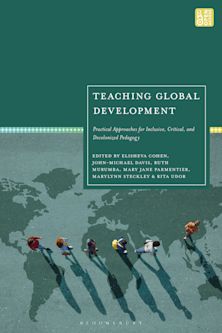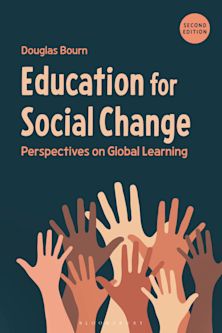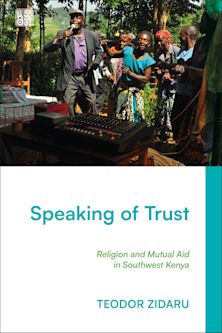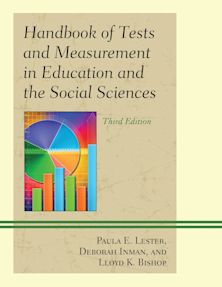- Home
- ACADEMIC
- International Development
- Society, Culture and Development
- Situated Fathering
Situated Fathering
A Focus on Physical and Social Spaces
- Textbook
Situated Fathering
A Focus on Physical and Social Spaces
- Textbook
Inspection copy added to basket
This title is available for inspection copy requests.
Please note our inspection copies are only available in ebook format, and are fulfilled by VitalSource™. If an ebook isn’t available, please visit our inspection copy page for more information.
Buy from Bloomsbury eTextBooks
You are now leaving the Bloomsbury Publishing website. Your eBook purchase will be with our partner https://www.vitalsource.com.
Your credit card statement will show this purchase originating from VitalSource Technologies. They will also provide any technical assistance you might require.
You must sign in to add this item to your wishlist. Please sign in or create an account
Description
When men act as parents they do so in diverse physical and social spaces imbued with symbolic meaning. They father in the military overseas, on the farm, in dilapidated inner cities, immersed in ethnic neighborhoods, navigating idealized places of leisure where families go, as stepfathers in spaces where physical dimensions and family meanings intersect, as nonresident fathers managing less than ideal conditions, rolling across the interstate as long-haul truckers, playing catch alongside the house, managing precious family-time in prison work-release programs, as participants in community fatherhood initiatives, etc. Until now, family scholars had not explicitly theorized and focused on how physical space shapes fathers' lives. A distinct volume of theoretical and empirical research, Situated Fathering addresses this oversight by proposing a new framework for studying how various contingencies of physical space, in conjunction with social/symbolic issues, affect men's identities as fathers and their involvement with children. Consistent with public interest in men's efforts to "be there" as providers and caregivers, this book explores issues associated with the barriers and supports to involvement that are part of the physical and social environment. Written largely for family scholars and students, it emphasizes a future-oriented perspective by outlining directions for theoretically guided research in specific, often gendered fathering sites.
Table of Contents
Chapter 2 Fatherhood and the Social Organization of Space: An Essay in Subjective Geography
Chapter 3 Fathers and the Navigation of Family Space and Time
Chapter 4 Contextual Scenarios for Stepfathers' Identity Construction, Boundary Work, and "Fatherly" Involvement
Chapter 5 Nonresidential Fathers: Shifting Identities, Roles, and Authorities
Chapter 6 The Haunted Hero: Fathering Profiles of Long-haul Truckers
Chapter 7 "Until the Ball Glows in the Twilight": Fatherhood, Baseball, and the Game of Playing Catch
Chapter 8 "Nobody Can Be a Father In Here": Identity Construction and Institutional Constraints on Incarcerated Fatherhood
Chapter 9 Situating Fatherhood in Responsible Fatherhood Programs: A Place to Explore Father Identity
Chapter 10 Military Fathers on the Front Lines
Chapter 11 Farm Dads: Reconstructing Fatherhood, the Legacy of the Land, and Family in the Fields of the Midwest
Chapter 12 "Gotta Protect My Own": Men Parenting Children in an Abandoned City
Chapter 13 Mexican American Fathering in Neighborhood Context
Chapter 14 Devoted Dads: Religion, Class, and Fatherhood
Product details
| Published | 28 Jul 2005 |
|---|---|
| Format | Ebook (Epub & Mobi) |
| Edition | 1st |
| Extent | 336 |
| ISBN | 9781461715252 |
| Imprint | Rowman & Littlefield |
| Publisher | Bloomsbury Publishing |
About the contributors
Reviews
-
Situated Fathering makes an outstanding contribution to how we understand fathers' lives in their many, varied contexts: physical, institutional, cultural, and social. A must read for serious students of fatherhood, researchers, and policy-makers.
Joseph H. Pleck, University of Illinois
-
Focusing on the link between fathers' experiences and the social organization of space, Marsiglio, Roy, and Fox provide a powerful framework for understanding the social conditions that foster or undermine involved fathering. Situated Fathering highlights how men negotiate varieties of fatherhood in a range of often overlooked settings, from farms to inner cities to prisons and beyond. An important contribution that helps us see all fathers-and, indeed, all parents-in a new way.
Kathleen Gerson, New York University



































